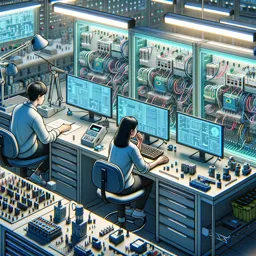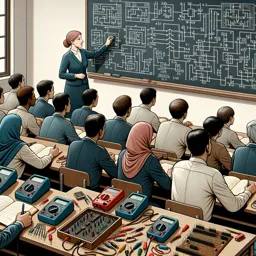Introduction
If you’ve already grasped the basics of electronics and are ready to amplify your skillset, understanding sensors and transducers is an essential next step. These components enable electronic systems to interact with the physical world, forming the backbone of countless modern applications for professionals in the electrical field.
What Are Sensors and Transducers?
- Sensors detect physical inputs from the environment, such as light, temperature, pressure, or humidity, and convert these signals into electrical outputs.
- Transducers more broadly convert one form of energy into another—often bridging the gap between the physical and electrical domains.
Types of Sensors Used in Electrical Work
Intermediate electricians frequently encounter these sensors:
- Temperature Sensors: Used in HVAC systems, refrigerators, and industrial automation.
- Pressure Sensors: Common in safety monitoring and fluid systems.
- Proximity Sensors: Found in automation, security, and access control systems.
- Light Sensors: Integral to lighting controls, smart homes, and energy-saving devices.
Practical Applications for Electricians
Having intermediate electronics knowledge allows electricians to:
- Troubleshoot and replace faulty sensors in automated systems.
- Design control systems utilizing sensor inputs for increased efficiency and safety.
- Integrate sensor arrays in building management and industrial automation projects.
Understanding Signal Conditioning
Raw data from sensors usually require processing before being useful. Signal conditioning involves amplification, filtering, and converting signals so microcontrollers or PLCs can interpret them. Learning to implement signal conditioning circuits is a valuable asset for any electrician working on advanced projects.
Key Takeaways
- Sensors and transducers connect electrical systems with the real world.
- They enable smarter, safer, and more efficient solutions in residential, commercial, and industrial settings.
- Intermediate understanding gives you confidence and the skills to handle upgrades, installations, and troubleshooting in modern electronic systems.
Continue building your knowledge and practical skills in electronics to stay competitive in a rapidly advancing field!































